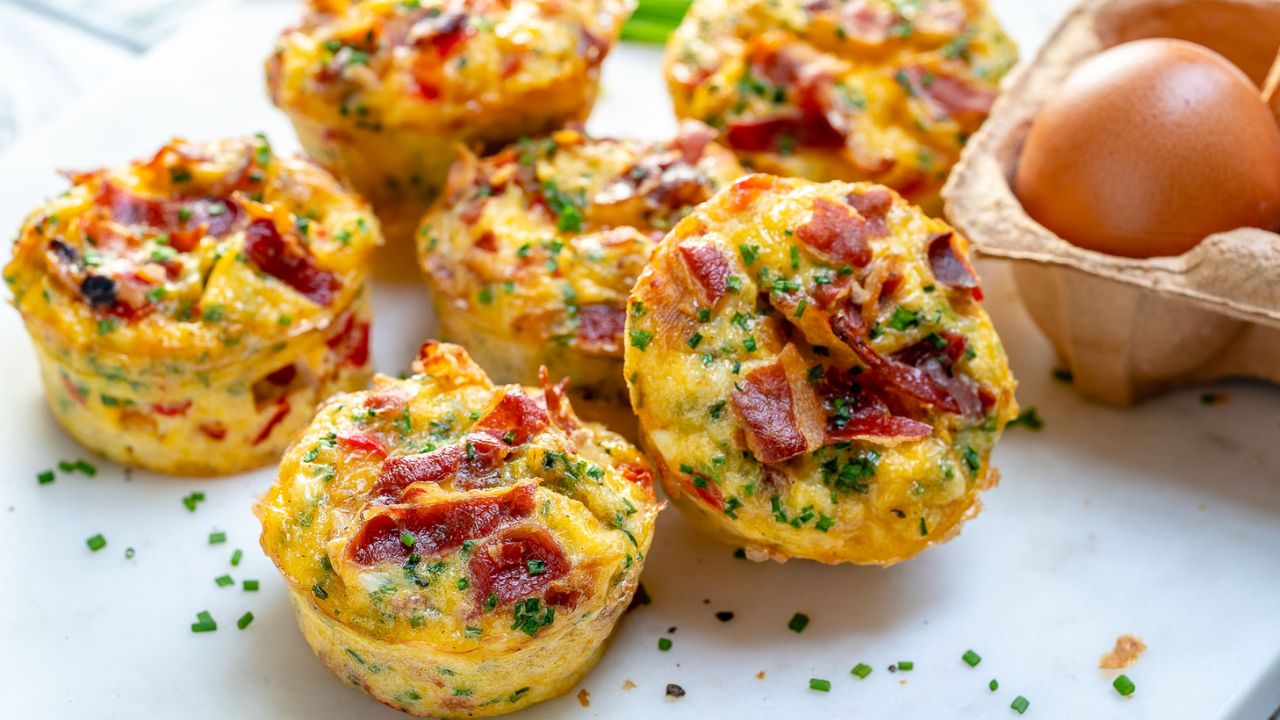Muffins are a classic breakfast treat that can be enjoyed with a cup of coffee or as a quick snack on the go. They are quick and easy to make, but many traditional recipes call for eggs, which can be problematic for people who have an egg allergy or who follow a vegan diet. Luckily, there are several egg substitutes that can be used in muffin recipes to achieve a similar texture and taste. In this blog post, we will be discussing the 7 best substitutes for eggs in muffins.
What is the Purpose of Eggs in Muffins?
The purpose of eggs in muffins is to serve as a binding agent and add moisture to the batter. Eggs also provide structure, stability, and richness to the muffins, helping to create a tender and light texture. Additionally, eggs contribute to the overall flavor of the muffins, providing a slightly sweet and rich taste.
In baking, eggs play a crucial role by providing the structure that holds the other ingredients together and preventing the muffins from falling apart. They also help to trap and hold the air that is beaten into the batter, resulting in a light and tender crumb. The proteins in eggs help to set the structure of the muffins, while the fats contribute to their flavor and moistness.
7 Best Eggs Substitutes in Muffins
1. Applesauce
Applesauce is one of the simplest and most common substitutes for eggs in muffin recipes. It acts as a binder and provides added moisture to the muffins, making them soft and fluffy. Applesauce also has a natural sweetness, which can help to cut down on the amount of sugar used in a recipe.
To use applesauce as a substitute for eggs in muffins, simply replace each egg with ¼ cup of applesauce. Keep in mind that the applesauce will also add natural sweetness to the muffins, so you may need to adjust the amount of sugar used in the recipe accordingly.
Additionally, applesauce can sometimes alter the flavor of the muffins, so be sure to use a flavor that complements the other ingredients in the recipe.
2. Yogurt
Yogurt is another great substitute for eggs in muffin recipes. It provides moisture and richness to the muffins, and its tangy flavor can also help to enhance the taste. Yogurt can be used in place of eggs in a 1:1 ratio, meaning that you can use the same amount of yogurt as the number of eggs called for in the recipe.
To use yogurt as a substitute for eggs in muffins, simply replace each egg with the same amount of yogurt. Greek yogurt is a great option as it is thick and creamy, making it ideal for use in muffin recipes.
3. Silken Tofu
Silken tofu is another great substitute for eggs in muffin recipes. It has a creamy texture that makes it ideal for use as a binding agent, and it also provides added protein to the muffins.
To use silken tofu as a substitute for eggs in muffins, simply puree the tofu in a blender or food processor until it is smooth, and then use it in place of eggs in a 1:1 ratio. Silken tofu is versatile and has a neutral flavor, so it won’t alter the taste of the muffins. Additionally, its smooth texture helps to create a creamy and tender texture in the muffins.
4. Buttermilk
Buttermilk is another common substitute for eggs in muffin recipes. Its tangy flavor and lightness can help to enhance the taste of the muffins, while its acidity also helps to create a tender texture. To use buttermilk as a substitute for eggs in muffins, simply replace each egg with ¼ cup of buttermilk.
Keep in mind that buttermilk can affect the flavor of the muffins, so be sure to choose a flavor that complements the other ingredients in the recipe. Additionally, if you don’t have buttermilk on hand, you can make your own by combining 1 cup of milk with 1 tablespoon of lemon juice or white vinegar and letting it sit for 5-10 minutes until it thickens.
5. Flax Seeds
Flax seeds are a great substitute for eggs in muffin recipes, as they can be used to create a gel-like substance that acts as a binding agent. To use flax seeds as a substitute for eggs in muffins, simply mix 1 tablespoon of ground flax seeds with 3 tablespoons of water for each egg called for in the recipe. Let the mixture sit for 5-10 minutes to thicken, and then use it in place of the eggs in the recipe.
Flax seeds are a great option for those who follow a vegan diet, as they are high in Omega-3 fatty acids and provide added nutritional benefits. However, they can also affect the flavor of the muffins, so be sure to choose a flavor that complements the other ingredients in the recipe.
6. Chia Seeds
Like flax seeds, chia seeds can also be used to create a gel-like substance that acts as a binding agent in muffin recipes. To use chia seeds as a substitute for eggs in muffins, simply mix 1 tablespoon of chia seeds with 3 tablespoons of water for each egg called for in the recipe. Let the mixture sit for 5-10 minutes to thicken, and then use it in place of the eggs in the recipe.
Chia seeds are a great option for those who follow a vegan diet, as they are high in fiber, Omega-3 fatty acids, and other important nutrients. However, like flax seeds, they can also affect the flavor of the muffins, so be sure to choose a flavor that complements the other ingredients in the recipe.
7. Aquafaba
Aquafaba is the liquid that is drained from a can of chickpeas, and it can be used as a substitute for eggs in muffin recipes. It acts as a binding agent, providing structure and moisture to the muffins, and it also has a neutral flavor, making it ideal for use in any type of muffin recipe.
To use aquafaba as a substitute for eggs in muffins, simply replace each egg with 3 tablespoons of aquafaba. Whip the aquafaba until it forms soft peaks, and then fold it into the muffin batter just before baking.
Conclusion
Eggs are an important ingredient in muffin recipes, but they can be a problem for those who have an egg allergy or follow a vegan diet. Fortunately, there are several substitutes that can be used in place of eggs to achieve a similar texture and taste, including applesauce, yogurt, silken tofu, buttermilk, flax seeds, chia seeds, and aquafaba.
When using any of these substitutes in muffin recipes, be sure to choose a flavor that complements the other ingredients, and adjust the recipe accordingly as needed.
In conclusion, making muffins without eggs is easy, and there are plenty of options available to suit your needs and preferences. Whether you’re looking for a healthy alternative or just want to try something new, these 7 substitutes for eggs in muffins are a great place to start.

